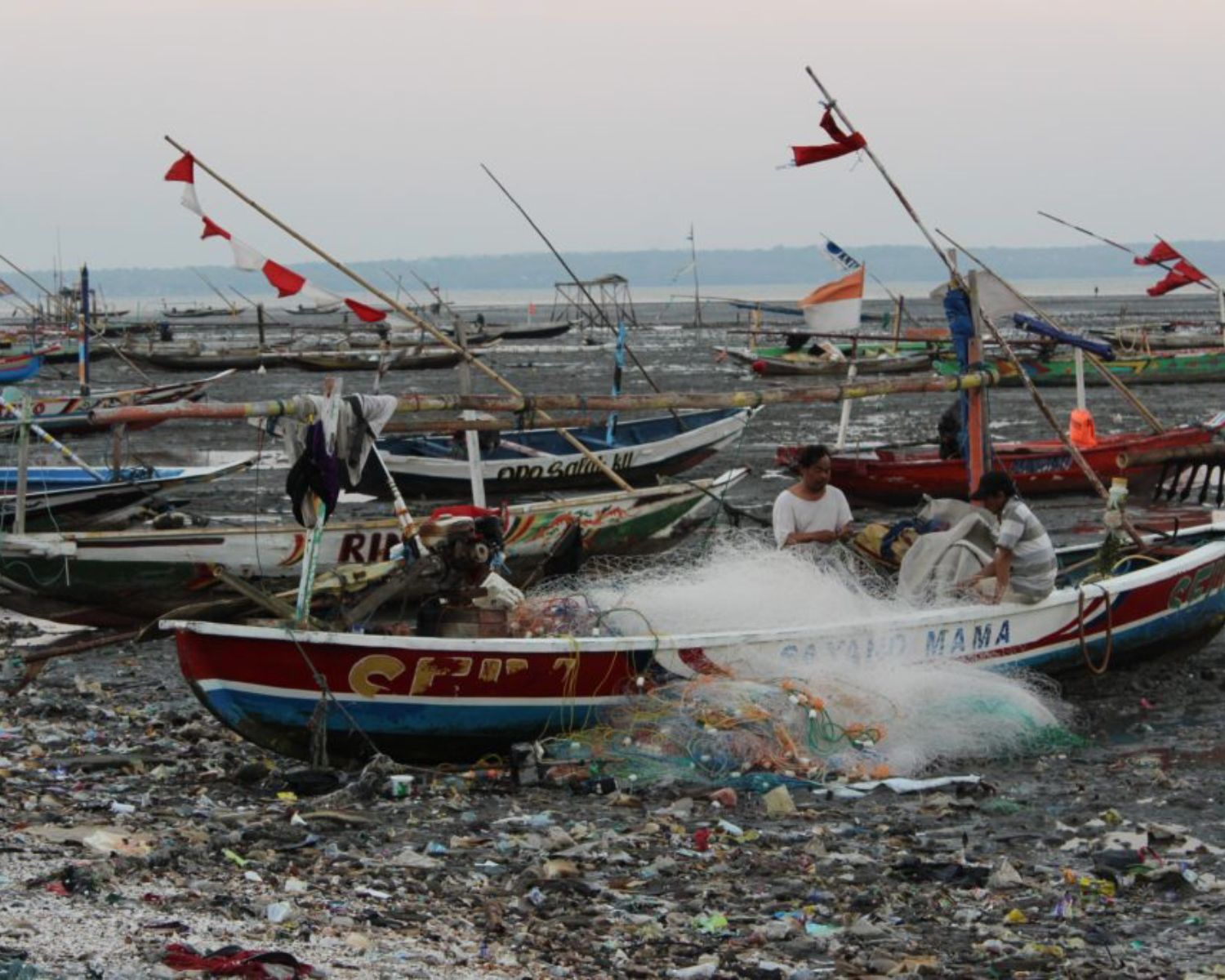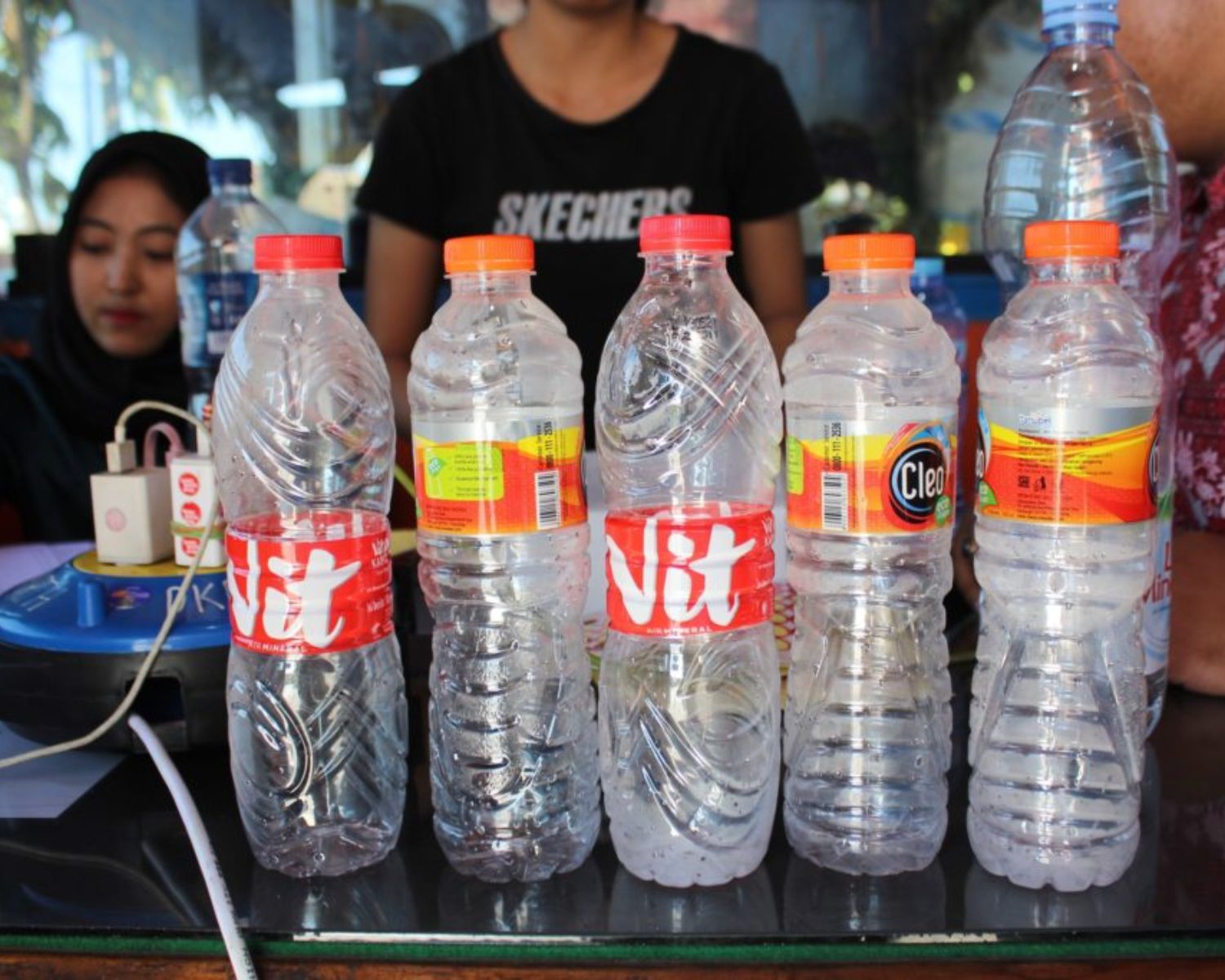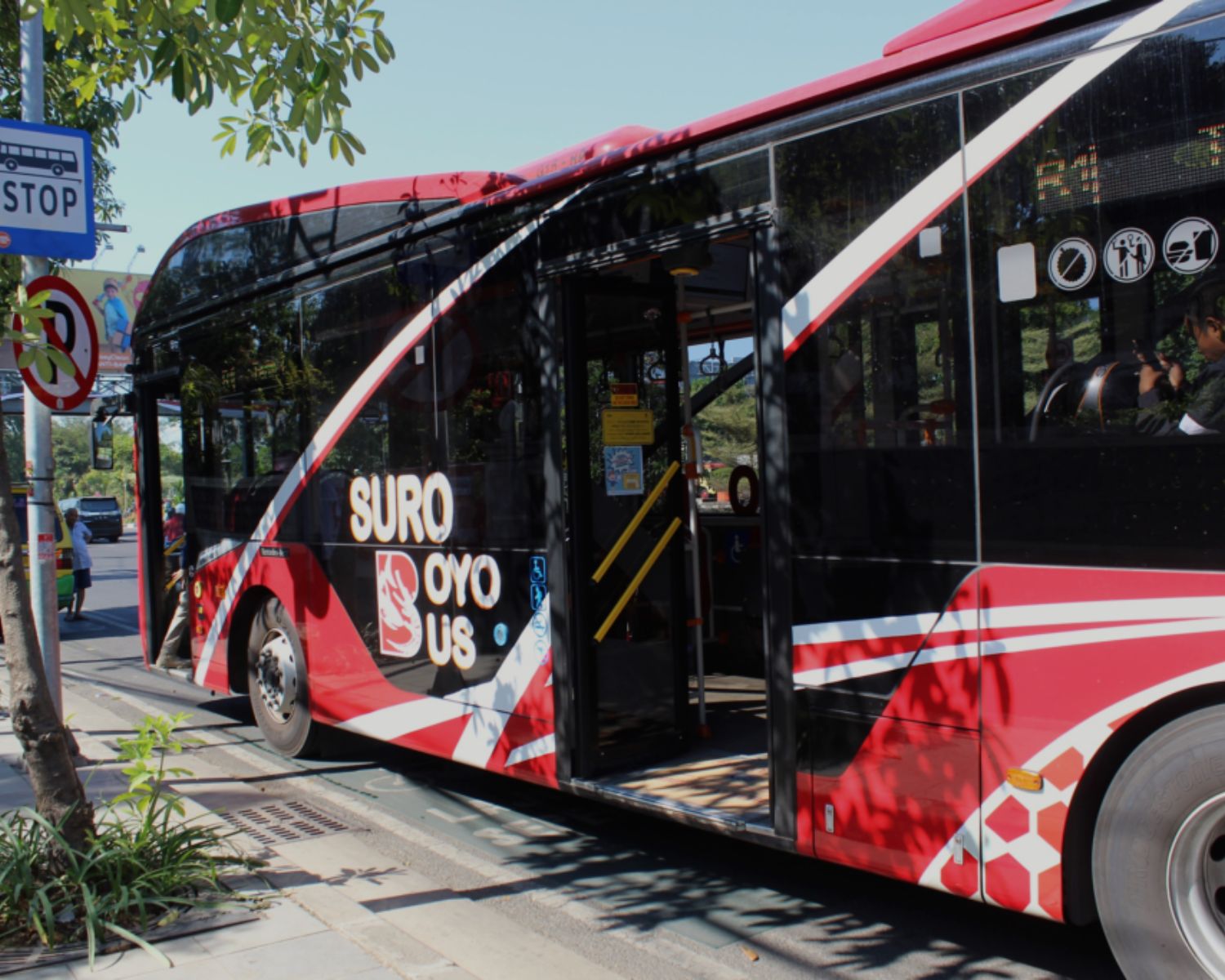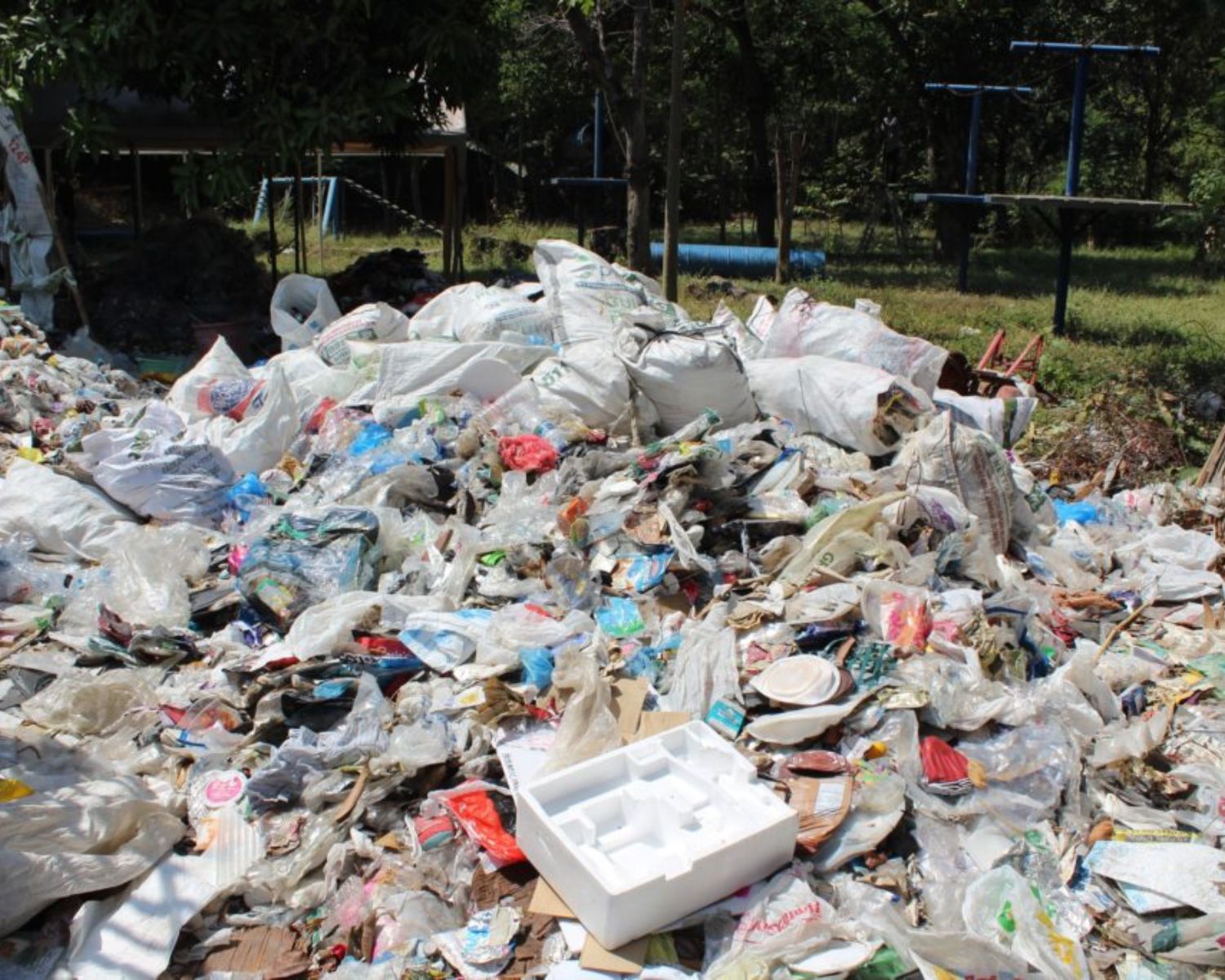Surabaya’s fight: a story of a city’s efforts in eliminating plastic waste
Indonesia, a country that attracts tourists from all across the globe, has been labelled as the second-largest contributor to plastic waste in the oceans. An illustrative scene that captures the reality of the problem is the plastic-covered beach coast the lines the city of Surabaya. Plastic resembles a growing tumor in Indonesia’s cities, affecting food systems, human health, and natural rivers. Fishing activities have declined as a result of the increased plastic in water. Recent reports have found evidence of microplastics in human feces, posing significant implications for public health. Rivers have become disposal sites of plastic-based products, including diapers and grocery bags. As a response, communities in Indonesia have taken on the challenge to reduce their plastic waste by 70 percent by 2025.
 This past summer, I had the opportunity to travel to the province of Jawa Timur to investigate pro-environmental behaviors and plastic waste. Under the mentorship of Professor Teresa Kramarz and Professor Virginia Maclaren, I began to study Surabaya’s efforts in tackling the plastic problem at the level of governments, markets, and communities. I met with grassroots organizations, entrepreneurs, researchers, and campaigners to learn more about the journey of Indonesia in eliminating plastic from its cities and promoting sustainable practices.
This past summer, I had the opportunity to travel to the province of Jawa Timur to investigate pro-environmental behaviors and plastic waste. Under the mentorship of Professor Teresa Kramarz and Professor Virginia Maclaren, I began to study Surabaya’s efforts in tackling the plastic problem at the level of governments, markets, and communities. I met with grassroots organizations, entrepreneurs, researchers, and campaigners to learn more about the journey of Indonesia in eliminating plastic from its cities and promoting sustainable practices.
Despite not having Jakarta’s economic centres or Bali’s tourist destinations, Surabaya stands out as a unique hub of environmental action in Indonesia. The city went beyond implementing the regular plastic tax and pursued behaviourally-informed solutions that are encouraging people to adopt sustainable habits. I examined different solutions in the city to investigate how Surabaya has succeeded at reducing the amount of waste that is sent to its landfills by 1000 tonnes each day.
 Public Transit: Paying Bus Fares with Plastic
Public Transit: Paying Bus Fares with Plastic
Surabaya is the first city in Indonesia to implement the innovative program of paying for a bus ticket with plastic waste. The city government, in collaboration with the ministry of environment, currently has 20 buses operating every 15 minutes on the main routes of Surabaya. The only acceptable method of payment on this bus is plastic! Throughout the first few months of their operation, around 980,000 passengers have used the system. The staff and operators ensure that the exchange process is convenient by equipping all stations and buses with recycling bins and waste banks to collect plastic from passengers. While the initiative has been criticized for rewarding plastic-usage, it still fills an important gap in the city’s waste management and infrastructure. Since Surabaya lacks a formalized recycling system, the city buses are providing an alternative to dispose of plastic in a sustainable manner.

Entrepreneurship: Accessible Zero Waste Shops
Indonesian entrepreneurs are also using evidence-based solutions, such as opening zero waste shops. However, they are adding their own cultural experience and knowledge into their work. One notable example is Alang-Alang Zero Waste Shop, which is the first zero waste shop in Surabaya. This shop is striving to stay waste-free, sustainable, and accessible by everyone. In an effort to engage all members of the community, the store hosts workshops and informative sessions to educate families about zero-waste living. They also offer delivery services to nearby neighbourhoods, relying on bicycles instead of cars or motorcycles to reduce their carbon footprint. The store also collaborates with local electronic waste collectors and clothing drives so that customers can bring in their used items to the store while shopping. The goal of the initiative is to change people’s dependence on plastic and nudge them towards sustainable behaviors. Lydia, the co-founder, engages with customers daily to talk to them about the purpose of zero waste lifestyles. In the future, Lydia hopes to connect with local farmers to stock a wider variety of organic items that are used in Javanese cuisine.
Research: Eliminating Toxic Plastic from Neighbourhoods
A common practise among Indonesians is to burn their plastic waste to get rid of the waste on their property. However, there are certain plastic products that emit harmful toxins when they are burned, causing severe health risks for people near the area. These plastics contain the chemical PBDE (Polybrominated diphenyl ethers), which has been banned by Parties of the Stockholm Convention for Persistent Organic Pollutants in 2009. Despite the ban, there are still old plastic scraps containing PBDE, such as the plastic material of electronics or furniture, that are being burned today.
In an interview with Pak Yunus, a professor at Surabaya University, he spoke of a research initiative led by the Department of Environmental Sciences that aims to address this problem. The idea of the project is to educate locals on the issue and to provide them with an alternative to dispose their plastic. This includes enabling individuals to identify PBDE-containing plastics and providing them with an outlet for safe disposal of the plastic. Instead of burning the plastic in their homes, individuals can bring their PBDE plastic to a centre where trained workers can dispose of it safely. This has allowed the team to prevent the emission of PBDE into residential areas, protecting the health of communities.
The Power of Communities
While Indonesia’s government has made noticeable progress in fighting plastic waste, the community at the ground level is doing incredible work in raising awareness, building communities, and organizing movements. Ecoton, a group that advocates for protecting rivers in Surabaya, has played a big role in the implementation of important policy changes since its formation in 2000. In fact, the group is responsible for the government decision to ban industries from disposing waste in the main river of Surabaya. During the past few months, Ecoton visited the city harbour to examine the paper imports into Indonesia. Surabaya has around 22 paper-recycling factories, and it accepts paper-waste imports from around the world to recycle it. However, they discovered that around 30-50% of the paper cargo containers are made up of plastic waste.
 The Ecoton team collected samples of the plastic waste and brought them to their office. They isolated each of the items to trace the producers and exporters of the plastic products in an effort to increase accountability. During the next few months, Ecoton plans to organize demonstrations demanding action from their government to discontinue the illegal importing of plastic.
The Ecoton team collected samples of the plastic waste and brought them to their office. They isolated each of the items to trace the producers and exporters of the plastic products in an effort to increase accountability. During the next few months, Ecoton plans to organize demonstrations demanding action from their government to discontinue the illegal importing of plastic.
Surabaya’s fight against plastic waste is inspiring on many levels. Despite the limited resources, the city has managed to reduce the amount of waste sent to landfills from 2600 tonnes to 1600 tonnes a day. Indonesians are taking part in reducing plastic waste by starting locally, building on previous efforts, and collaborating between sectors. All of these examples serve as valuable lessons for cities across the world to act in protecting our global environment.
Shahd Fulath Khan is a Munk One ‘17 alumna in her third-year of university, studying Psychology, Neuroscience, and Political Science. She is the recipient of the Dr. David Chu Scholarship, which is awarded to students who are pursuing research activities in the Asia-Pacific region. This summer, she travelled to Surabaya, Indonesia to study pro-environmental behaviors and plastic-waste elimination in the city.

